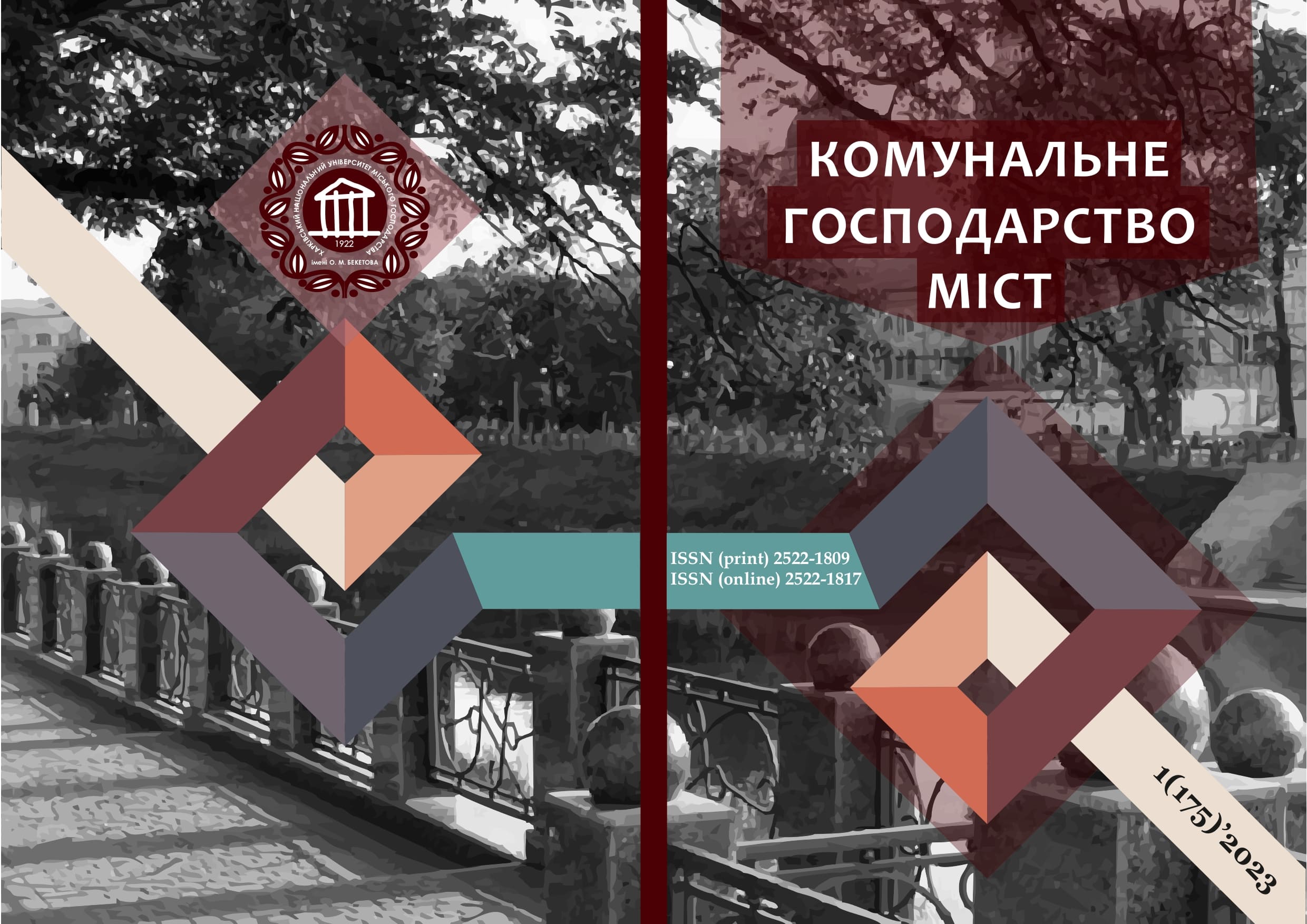STUDY OF THE INFLUENCE OF REGIONAL DEVELOPMENT FACTORS ON THE FORMATION OF THE STUDENT CONTINGENT
DOI:
https://doi.org/10.33042/2522-1809-2023-1-175-94-98Keywords:
educational components, PhD, educational programs, geodesy and land management, general and professional competencesAbstract
The relevance of the study of the influence of factors of regional development on the formation of the contingent of students has been proven. The purpose of the study is to determine the cause-and-effect relationships between the number of students in higher education institutions and the regional development indicator.
To achieve the goal, the following tasks are solved:
- characteristics of mathematical tools to ensure the educational process;
- development of a mathematical model of the influence of the gross regional product index on the number of students in higher education institutions.
Proposed directions Mathematical modeling is implemented through the prism of the relevant stages: formation of information and analytical support regarding the factor of formation of the contingent of students by region and the integral indicator of regional development; application of mathematical modeling methods in relation to establishing the influence of the factor on the integral indicator; development of mathematical models of the influence of the factor on the integral indicator of regional development; determination of criteria for the adequacy of mathematical models; interpretation of the obtained results.
The ways of assessing the integral indicator of regional development are determined: determination of local factors of regional development; formation of general indicators of regional development; construction of a multi-level system of integrated assessment indicators; assessment of local factors using quantitative and qualitative methods; development of mathematical models for the assessment of generalizing factors; assessment of generalizing factors using the geometric mean method; construction of an integral model of assessment of regional development; determination of weight coefficients taking into account the corresponding stimulants; assessment of the integral indicator of regional development.
As a result of the study, it was determined that the gross regional product index causes a change in the number of students in higher education institutions by 68%. It should be noted that other factors negatively affect the number of applicants. In the study, a mathematical toolkit is proposed, which allows you to form a quantitative basis for making management decisions. It was established that in the future, regional factors and demographic parameters lead to a decrease in the number of students in higher education institutions, which negatively affects the development of the educational system.
References
The official website of the State Statistics Service of Ukraine. Retrieved from: https://www.ukrstat.gov.ua/.
Danilyan O. G., Dzoban O. P. (2019) Educational and methodological manual for the discipline «Organization and methodology of scientific research», 40.
Lugovoi V. I., Talanova Zh. V. (2014) International standard classification of education: fields of education and training (post-garden analysis and application algorithm). Pedagogy and psychology, 3. 5–17.
Lugovy V. I., Slyusarenko O. M., Talanova Zh. V. (2014) National autonomy in higher education in the USA: experience for Ukraine. Higher education of Ukraine: Theoretical and scientific and methodological journal, 1. 217–225.
Rashkevich Yu. M. (2014) The Bologna process and the new paradigm of higher education: a monograph. 168.
Talanova Zh. V. (2010) Doctoral training in the world and Ukraine: monograph. 476.
Husak L. P., Gulivata I. O. (2016) Mathematical modeling as a means of implementing the professional focus of teaching mathematics in economic specialties of higher educational institutions. Scientific Bulletin of the Uzhgorod University, 1(38). 105–107.
Nichugovska L. I. (2008) Adaptive concept of mathematical education of university students and competitiveness of graduates: methodology, theory, practice: monograph. 153.
Rum'yantseva K. E. (2017) Interdisciplinary orientation of the course of higher mathematics in economic education. Physical and mathematical education: scientific journal, 1(11). 97–100.
Tkach Yu. M. (2011) Professional focus of teaching higher mathematics in the system of economic education. Didactics of mathematics: problems and research, 35. 93–97.
Fomkina O. G. (2008) Improvement of mathematics teaching methods in an economic university: ways, forms and means, perspectives: monograph. 122.
Stanzhytskyi O. M., Taran E. Yu., Gordynskyi L. D. (2006) Fundamentals of mathematical modeling: Training manual. 96.
Downloads
Published
How to Cite
Issue
Section
License
The authors who publish in this collection agree with the following terms:
• The authors reserve the right to authorship of their work and give the magazine the right to first publish this work under the terms of license CC BY-NC-ND 4.0 (with the Designation of Authorship - Non-Commercial - Without Derivatives 4.0 International), which allows others to freely distribute the published work with a mandatory reference to the authors of the original work and the first publication of the work in this magazine.
• Authors have the right to make independent extra-exclusive work agreements in the form in which they were published by this magazine (for example, posting work in an electronic repository of an institution or publishing as part of a monograph), provided that the link to the first publication of the work in this journal is maintained. .
• Journal policy allows and encourages the publication of manuscripts on the Internet (for example, in institutions' repositories or on personal websites), both before the publication of this manuscript and during its editorial work, as it contributes to the emergence of productive scientific discussion and positively affects the efficiency and dynamics of the citation of the published work (see The Effect of Open Access).

